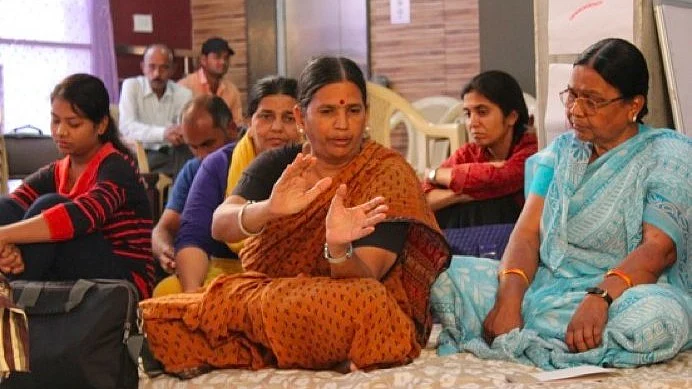Trade union activist and lawyer, Sudha Bharadwaj, has been put under the ambit of the Pune police and the law, with the order for her arrest in connection to her alleged role in the Bhima Koregaon clashes and for having ‘Maoist links’ changed by Chief Judicial Magistrate Ashok Kumar to house arrest on Tuesday, 28 August.
The Magistrate, in his statement, directed that Bharadwaj should be kept at her home in Faridabad until Thursday, 30 August, until the case is brought up for hearing at the High Court once again, The Indian Express reports.
Bharadwaj had been arrested after the Pune police carried out multi-city raids on the residences of people suspected of having Maoist links. The raids, in turn, were carried out as part of a probe into the violence at Maharashtra’s Bhima-Koregaon village, after an event called ‘Elgar Parishad’ (conclave) held in Pune on 31 December 2017.
The Police claimed that they had seized two laptops, two mobile phones, and one pen drive, and had also taken down her email and social media passwords, The Indian Express reports.
Bharadwaj, a known public figure by her own admission, and a fierce activist for the underprivileged, denied all the allegations against her and said that she was being set up by the concerned authorities.
Let’s take a look at the life of the activist-lawyer, who by her own declaration, chose the more challenging role of activism instead of earning a lofty degree and job overseas.
Introduction to Grassroots Activism
Bharadwaj’s introduction to social activism at the grassroots level took place during her time at IIT Kanpur, where she had enrolled after school to receive an engineering degree.
Before this, Bharadwaj obtained her primary education in England, where her mother Krishna Bharadwaj, an economist, was posted. Later, she moved back to India and spent her formative years in the JNU campus, as her mother founded JNU’s Centre for Economic Studies and Planning.
Speaking to Monobina Gupta of The Wire, Bharadwaj professed that growing up in the politically active climate of JNU – where free speech was encouraged and debates on all matters were carried out without fear – allowed her at a very early age to embrace political activism.
Recounting her time at IIT Kanpur, she told The Wire that sexism and elitism were both rampant in the campus. However, it led her to carry out her first act as a grassroots activist.
I had my first encounter with caste there. I used to teach children in the nearby Kalyanpur village.Sudha Bharadwaj to The Wire
She also had her first brush with trade unionism then, when she began to work with the campus mess workers, addressing their problems.
Trade Unionism Under Patronage of Shankar Niyogi
It was under the patronage of legendary trade union leader Shankar Guha Niyogi, who founded the labour organisation Chhattisgarh Mukti Morcha (CMM), that her lifelong zeal to speak for the rights of trade union workers materialised in full form.
Speaking to The Wire, she said that she was a part of the student groups who had mobilised signatures to strengthen a petition for the release of Niyogi, who had been arrested in 1982 in Chhattisgarh.
Two years later, she packed her bags and shifted to the mining town of Dalli Rajhara to start working at the CMM, under Niyogi’s patronage.
The CMM worked with the most vulnerable among workers – construction labourers, who still had very deep rural roots, The Wire report states.
Becoming a Lawyer
Bharadwaj’s introduction the Indian judiciary system took place after Niyogi was assassinated in 1991.
I was one of the few people who knew English. I remember at that time assisting lawyers like Kamini Jaiswal, Vrinda Grover. I was keenly following the proceedings. The government prosecutor told me to become a lawyer.Bharadwaj told The Wire
Enrolling herself in Durg College in 1997 to obtain a degree in law, Bharadwaj told The Wire that the first cases she fought after becoming a lawyer, were those of her own trade union.
Initially, she worked in the lower courts in the period between 2000 and 2006. Following this, she began to practice at the higher courts, as the cases concerning the vulnerable classes began to be discussed there.
She was a part of a group of lawyers named ‘Janhit’, a legal organisation which would provide group legal aid to movements, to help the communities and groups that did not fall under the ambit of the usual legal aid system, The Wire report adds.
Finally, speaking about carrying out her activist work under the Modi government which came to power in 2014, she told The Wire that while challenges had existed before it as well, the tensions and attacks against the minorities had increased “enormously” under the new administration.
(At The Quint, we question everything. Play an active role in shaping our journalism by becoming a member today.)
